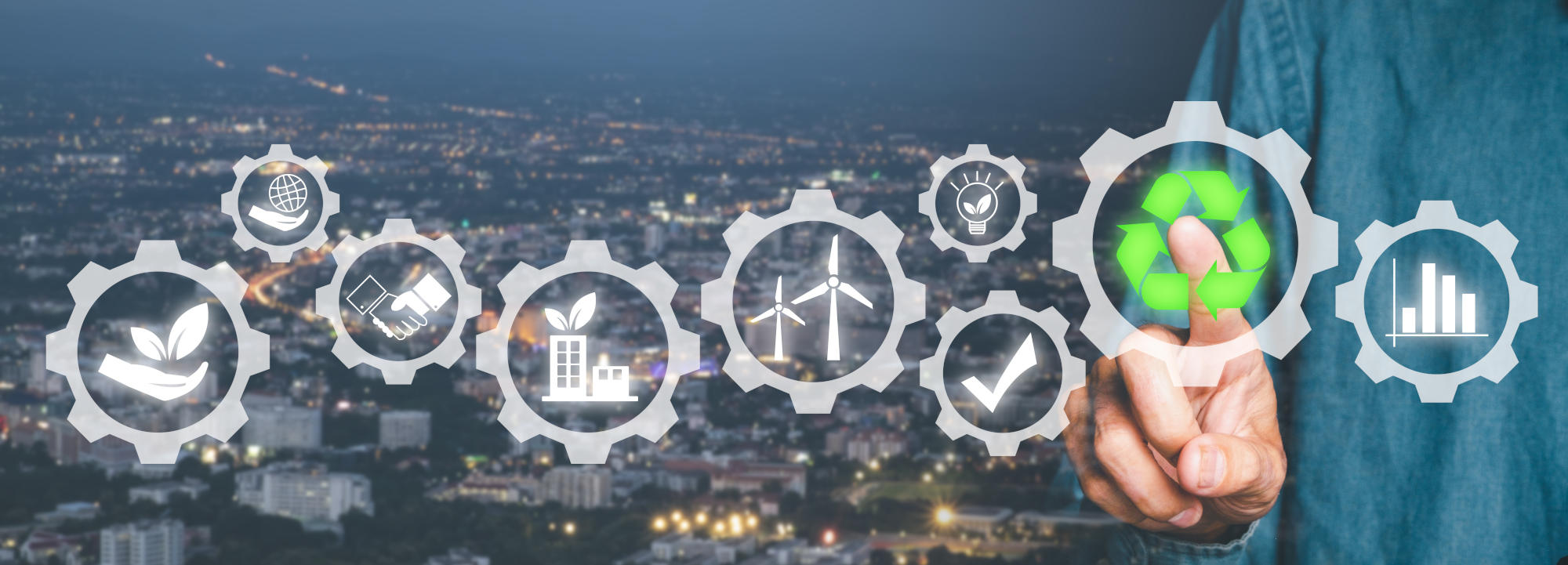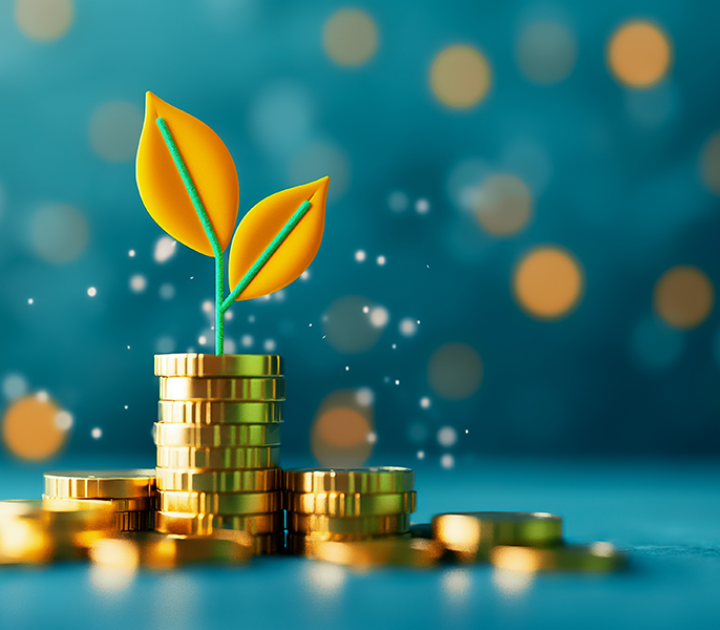The role of building entrepreneurial ecosystems in Africa to canalize impact investment

The health of local entrepreneurial ecosystems plays a vital role in driving sustainable economic growth and also in attracting impact investors.
How should impact investors support entrepreneurs in Africa? How important is it to build healthy local ecosystems? What role should local communities play in designing their own solutions?
In this webinar, led by Professor Vanina Farber, elea Chair of Social Innovation, and Maryanne Ochola, Senior Regional Chapter Manager for the Aspen Network of Development Entrepreneurs (ANDE) in East Africa, we explore how local entrepreneurial ecosystems in Africa function and how impact investors can support them effectively.
The webinar appeared live on Wednesday, 17th June 2020 at 1100 CEST.
“Africa is investible. Africa has opportunities, it has returns,” said Maryanne Ochola, an impact investment expert with experience working with entrepreneurs in seven African countries.
“But we need to be ready to learn from the local context and to be part of ecosystems with people who are already working there.”
Ochola is a Senior Regional Manager in East Africa for ANDE, a network of organizations providing financial and non-financial support to Small and Growing Businesses (SGBs).
One of ANDE’s key pillars is cultivating entrepreneurial ecosystems with the belief that SGBs are key to driving local economic growth and social impact.
With more than 280 members worldwide who have invested $14.8 billion directly into SGBs, ANDE and its members also support over 730,000 SGBs with capacity development services.
“When we think about ecosystems, we operate on the thesis that innovation is global, but we emphasize the role of the region as a critical nexus of innovation-based economic growth,” Ochola said.
“We believe that it’s a contact sport – it is how intimate those ties are, that’s what grows ecosystems. The more fragmented they are, the weaker it is. The more tightly knit they are, the more it works. That’s the sweet spot – that’s what we focus on.”
Professor Farber explained that, while there has been growth in impact investment activity, it has not yet become mainstream at scale, in part because some local impact investment and entrepreneurial communities are more vibrant than others across different regions.
“If we want to think systemically, we cannot think only about investors or entrepreneurs, but we also need to integrate the interconnecting forces that promote and sustain entrepreneurship and the development of business models that drive solutions that respond to social and environmental challenges,” Professor Farber said.
“There is a lot of evidence that countries that have vibrant entrepreneurial ecosystems can produce economic development.”
One of the key challenges for effective impact investment in African SGBs is the way solutions are designed, Ochola said.
“Problem framing is not done locally, most of the time the problem is framed outside of the continent. The interventions are created outside of the continent and then it’s just application that happens.
“As you can imagine sometimes that doesn’t work – actually, most of the time,” she said.
“So with this new approach the people in that ecosystem define their challenge the way they see it.
“External support comes only once that is clearly articulated, trust has been built, people are ready to collaborate and the only boost they need is perhaps financial or non-financial capacity building.”
In response to better understand the landscape and needs of local entrepreneurs and to offer impact investors deeper insight to guide their investments, ANDE produces entrepreneurial ecosystem snapshots and entrepreneurial ecosystem diagnostic toolkits.
It is currently also undertaking its first “deep dive” of the Ugandan entrepreneurial ecosystem, in two of its key regions – Kampala and Gulu – supported by Argidius, the Dutch government and the Small Foundation.
“The ecosystems have to be built by the stakeholders of that ecosystem, it cannot be done outside of the region,” she said.
ANDE identified binding constraints faced by SGBs in Kampala, for example: access to early stage finance and business development support (BDS).
For early stage finance, ANDE recommends the strengthening of credit reference bureaus, piloting and scaling tailored financial instruments such as leasing and asset finance and establishing non-distortionary loan guarantee facilities.
For BDS, it recommends creating “one stop shop” BDS providers for moderate growth SGBs, encouraging new, early-stage accelerators and incubators for high growth SGBs, as well as supporting existing accelerators and establishing more BDS subsidies and grants.
As the world slowly emerges from the COVID-19 lockdown, there have been concerns that impact investment will suffer. Ochola said that, while the disaster that many predicted for Africa has yet to materialize, the pandemic has created serious challenges for entrepreneurs in emerging markets.
“A lot of supply chains are global and a lot of investment is coming from areas that are epicenters,” she said, citing an ANDE survey which found that 42% of SGBs in emerging markets could fail in the next six months.
“COVID has taught us how fragile global supply chains can be to disruption. We need to build regional supply chains that are more resilient and more responsive.”
But, on a positive note, she said the future looked brighter for SGB investment, once the current disruption has subsided.
“A lot of money will be available after this because investors will not meet their targets for investment given the current environment. The businesses that survive will be well placed. How do you build resilience? If you are a business in Africa, you are already resilient by definition!”
To find out more about upcoming webinars from the elea Center for Social Innovation, please visit the Center’s page here.
Research Information & Knowledge Hub for additional information on IMD publications

Subsidies of renewables has led to electricity prices frequently falling to less than zero leading to opportunities for consumers

Once corporate activists, today’s CSOs are business integrators. 6 ways the CSO role is evolving: strategist, risk mitigator, innovator, regulator, storyteller, and leader.

AI is revolutionising industry by improving efficiency and driving sustainability. Discover how data-driven insights shape a greener future

Chanel Global CFO and IMD Executive in Residence Philippe Blondiaux explains how finance leaders can sustain a long-term focus on sustainability while addressing short-term challenges.

Discover a framework for Responsible Leadership, guiding you to lead with care and ethics in an increasingly turbulent and complex world.
The case examines the entrepreneur-led carve out and buyout of dss+, DuPont’s safety and sustainability consulting division, by Gyrus Capital and dss+ management team. dss+ (formerly “DuPont Sustainable Solutions”) played a pivotal role in high-ri...

The need to protect nature is a challenge for all companies. But do you know the potential business benefits of a successful biodiversity strategy? Take this short quiz to test your knowledge of the issue, and read on for a five-step guide to gett...

Leaders, strategists, and decision-makers can play a pivotal role in integrating sustainability into business strategies – and make money in the process. Knut Haanaes, Bryony Jansen van Tuyll, and Øystein D. Fjeldstad outline five steps to make it...

AI can enhance sustainability reporting and help you deepen green efforts – but it also has an environmental impact of its own. Julia Binder and José Parra Moyano identify the four ‘hows’ of harnessing AI for enhanced sustainability reporting and ...

No single leader or business function can drive progress toward net zero. Knut Haanaes identifies six ways in which CHROs can help drive organizational change.
Research Information & Knowledge Hub for additional information on IMD publications
in I by IMD
Research Information & Knowledge Hub for additional information on IMD publications
in I by IMD
Research Information & Knowledge Hub for additional information on IMD publications
in I by IMD
Research Information & Knowledge Hub for additional information on IMD publications
in I by IMD
Research Information & Knowledge Hub for additional information on IMD publications
Case reference: IMD-7-2639 ©2025
Research Information & Knowledge Hub for additional information on IMD publications
in I by IMD Brain Circuits 24 February 2025
Research Information & Knowledge Hub for additional information on IMD publications
in I by IMD Brain Circuits 17 February 2025
Research Information & Knowledge Hub for additional information on IMD publications
Research Information & Knowledge Hub for additional information on IMD publications
Research Information & Knowledge Hub for additional information on IMD publications


